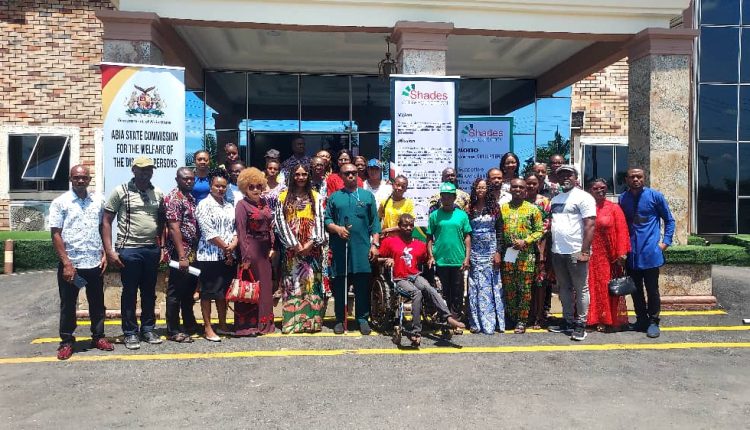Experts Urge Early Intervention, Greater Awareness of Autism, Learning Disabilities
Health and education professionals have emphasized the critical importance of early detection and intervention in managing autism and learning disabilities in children.
They disclosed this during an awareness programme held in Umuahia, Abia State, organized by the Shades of Life Foundation in partnership with the Abia State Commission for the Welfare of Disabled Persons.
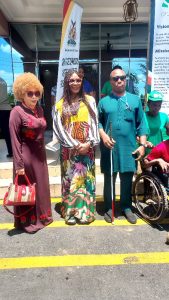
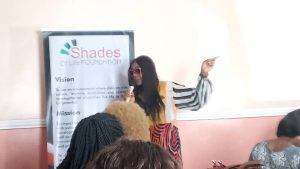
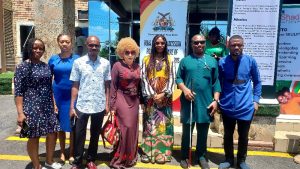
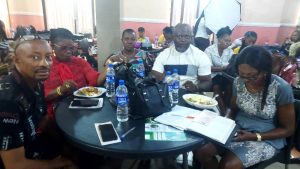
In her keynote address, Dr. Eziafakaku Nwaokolo, Chief Executive Officer of Shades of Life Foundation, described autism as a complex spectrum of neurodevelopmental disorders that affect communication, behavior, and social interaction.
“Autism Spectrum Disorder (ASD) presents differently in every child,” Dr. Nwaokolo noted. “Some children may show signs as early as 12 months, while others might not display symptoms until they are two years old or older. What matters most is that parents, caregivers, and educators remain attentive and responsive to these early signs.”
She explained that while autism typically manifests before the age of three, it is a lifelong condition that evolves with age. Adolescents, she said, may face challenges in forming relationships, interpreting social cues, and adapting to academic or workplace demands.
“Early diagnosis and consistent support are crucial in helping children with autism reach their full potential,” she emphasized.
Dr. Nwaokolo also addressed the issue of stigma and misinformation surrounding neurodevelopmental disorders. She called for a shift away from harmful stereotypes and urged the public to treat affected children with empathy and respect.
“We must stop labeling children with autism as ‘stubborn’ or ‘possessed.’ These are medical conditions that deserve informed care and professional support,” she stated.
She thanked Governor Alex Chioma Otti for his inclusive policies and strong support for persons with disabilities, describing him as a leader committed to the well-being of vulnerable groups.
Also speaking at the event, Dr. Stanley Onyebuchi, Commissioner for the Welfare of Disabled Persons in Abia State, praised the initiative, calling it both “timely and essential.”
He stressed the importance of awareness campaigns, especially in rural communities where knowledge of developmental disorders remains limited.
“Raising awareness requires a collective effort—parents, teachers, health professionals, and even traditional leaders all have a role to play,” Dr. Onyebuchi said. He added that diagnosis and intervention must be tailored to each child’s unique needs, environment, and challenges.
“There’s no universal model. Tools and strategies must be adapted to each situation, and local capacity must be built to meet the growing need,” he explained.
Comrade Dan Onuoha, Head of the Information Unit and Public Relations at the Secondary Education Management Board, highlighted early warning signs of autism and learning disabilities. These include a lack of eye contact by 12 months, avoidance of peer interaction, repetitive behaviors, and limited use of gestures such as pointing or waving.
“Teachers must be equipped to spot these signs and engage with parents early on,” he urged. He also called for stronger collaboration between schools and health agencies to create inclusive and supportive learning environments for children with special needs.
The event concluded with a united call for ongoing public education, stronger policy enforcement, and a more compassionate societal approach to neurodevelopmental conditions.
“As a society, we must focus on abilities, not disabilities,” Dr. Nwaokolo concluded. “With the right support, children with autism and learning difficulties can succeed—in school, at home, and in life.”
Copyright © EaglesWatchOnline 2023 All rights reserved.
This material, and other digital content on this website, may not be reproduced, published, broadcast, rewritten or redistributed in whole or in part without written permission from EaglesWatchOnline.

